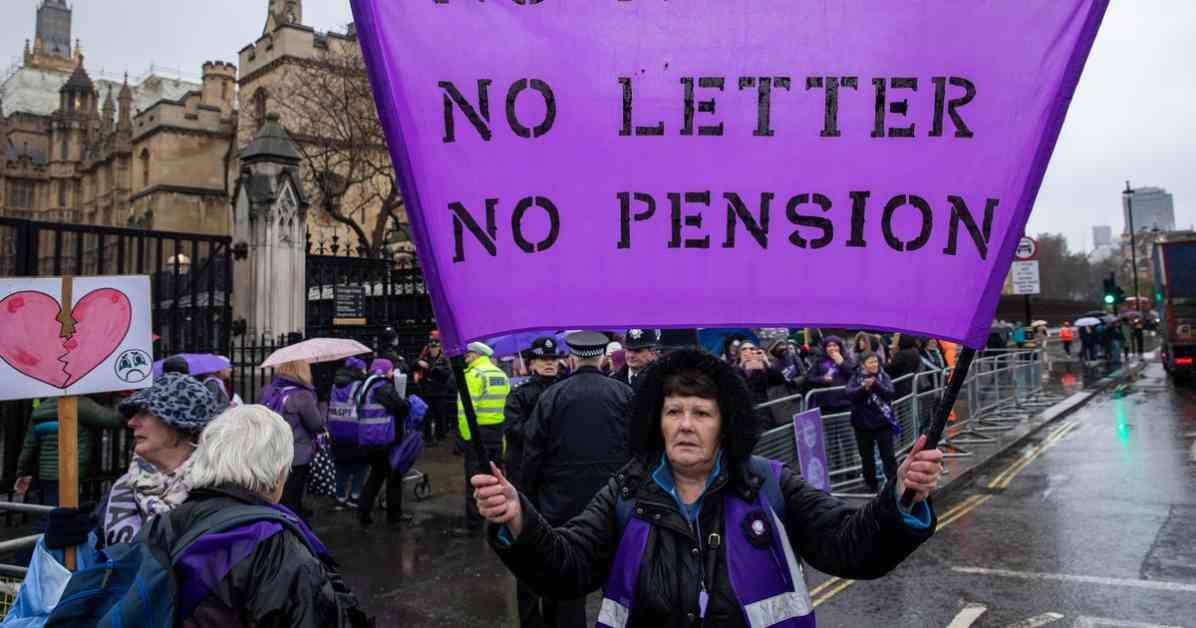The Women Against State Pension Inequality (Waspi) group is making headlines once again as they threaten the government with legal action over the ongoing pensions row outrage. This group of campaigners, consisting of 3.6 million women born in the 1950s, is demanding compensation for the changes to the state pension age that were not adequately communicated to them in the 1990s. Despite a recommendation from the parliamentary ombudsman for payouts of up to £2,950 each due to a significant delay in informing these women about the changes, the government has stood firm in its decision not to provide compensation.
Challenging the Government
Work and Pensions Secretary, Liz Kendall, has defended the government’s position by stating that there was “considerable awareness” of the changes to the pension age and that sending letters earlier would not have altered the retirement choices of the affected women. This response has sparked outrage among the Waspi group, with chair Angela Madden deeming the government’s stance as both an “outrage” and “legally wrong.” The campaigners have persistently argued that the delayed information caused financial hardship and forced them to reconsider their retirement plans.
In a bold move, the campaigners have taken legal action by sending a “letter before action” to the government, giving them an opportunity to respond before proceeding with a potential judicial review at the High Court in two weeks’ time. If this review is granted, it will allow for a closer examination of the government’s assertion that there was no direct financial loss suffered by the affected women. Madden emphasized the importance of seeking justice through the legal system, stating, “The alternative is continued defense of the indefensible but this time in front of a judge.”
The Long Road to Justice
The roots of this pensions row can be traced back to 1995 when the Conservative government initially decided to equalize the age at which men and women received their state pensions. Subsequent changes were made by the Conservative-Lib Dem coalition in the aftermath of the 2010 global financial crisis to accelerate this process. However, the lack of timely communication from the government regarding these changes has now led to legal action from the Waspi group.
Since 2023, the campaigners have been fundraising to cover their legal expenses, with a current total of £162,480 raised. Despite their efforts, the compensation offered by the ombudsman has been deemed inadequate by the group, prompting them to seek a Judicial Review at the High Court. This legal action comes with significant financial risks, as challenging a public authority with greater resources could result in substantial costs.
As the Waspi group continues to fight for justice, the potential impact of a successful case could cost the government as much as £10.5bn. However, with economic challenges and concerns about the burden on taxpayers, the Prime Minister has expressed reservations about the feasibility of providing compensation. The battle between the campaigners and the government is far from over, as the pursuit of legal recourse remains the only avenue for seeking redress for the injustices faced by these women.
In conclusion, the Waspi group’s threat of legal action over the pensions row highlights the ongoing struggle for justice and fair treatment for millions of women affected by changes to the state pension age. The complex legal battle underscores the importance of effective communication, transparency, and accountability in government policies that impact the lives of citizens. As the fight for compensation continues, the outcome of this case could have far-reaching implications for both the affected women and the government’s approach to addressing historical injustices.













